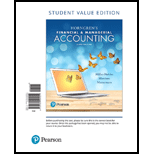
Bill and Edna had been married two years and had just reached the point where they had enough savings to start investing. Bill's uncle Dave told them that he had recently inherited some very rare railroad bonds from his grandmother's estate. He wanted to help Bill and Edna get a start in the world and would sell them 50 of the bonds at $100 each. The bonds were dated 1873, beautifully engraved, showing a face value of $1,000 each. Uncle Dave pointed out that "United States of America'' was printed prominently at the top and that the U.S. government had established a sinking fund to retire the old railroad bonds. A sinking fund is a fund established for the purpose of repaying the debt. It allows the organization (the U.S. government, in this example) to set aside money over time to retire the bonds. All Bill and Edna needed to do was hold on to them until the government contacted them, and they would eventually get the full $1,000 for each bond. Bill and Edna were overjoyed-until a year later when they saw the exact same bonds for sale at a coin and stamp shop priced as "collectors' items" for $9.95 each!
Requirements
1. If a company goes bankrupt, what happens to the bonds it issued and the investors who bought the bonds?
2. When investing in bonds, how can you tell whether the bond issue is a legitimate transaction?
3. Is there a way to determine the relative risk of corporate bonds?
Want to see the full answer?
Check out a sample textbook solution
Chapter 12 Solutions
Horngren's Financial & Managerial Accounting, Student Value Edition Plus MyLab Accounting with Pearson eText -- Access Card Package (6th Edition)
Additional Business Textbook Solutions
Business Essentials (12th Edition) (What's New in Intro to Business)
Financial Accounting: Tools for Business Decision Making, 8th Edition
Macroeconomics
Intermediate Accounting (2nd Edition)
PRIN.OF CORPORATE FINANCE
Operations Management
- Required information [The following information applies to the questions displayed below.] Kitimat Company manufactures winter hats that sell for $42 per unit. The following information pertains to the company's first year of operations in which it produced 40,100 units and sold 37,600 units. Variable costs per unit: Manufacturing: Direct materials Direct labour Variable manufacturing overhead Variable selling and administrative Fixed costs per year: Fixed manufacturing overhead Fixed selling and administrative expenses 16 $ 16 $ $ 1 $ 2 $401,000 $247,000 9. What would have been the company's variable costing operating income if it had produced and sold 37,600 units?arrow_forwardRequired information [The following information applies to the questions displayed below.] Kitimat Company manufactures winter hats that sell for $42 per unit. The following information pertains to the company's first year of operations in which it produced 40,100 units and sold 37,600 units. Variable costs per unit: Manufacturing: Direct materials Direct labour Variable manufacturing overhead Variable selling and administrative Fixed costs per year: Fixed manufacturing overhead Fixed selling and administrative expenses $ 16 LA LA LA LA $ $ 6612 $401,000 $247,000 4. What is the company's operating income under variable costing?arrow_forwardDo fast answer of this general accounting questionarrow_forward
- Using the high-low method, estimate a cost formula for power cost. ??arrow_forwardJorgansen Lighting, Incorporated, manufactures heavy-duty street lighting systems for municipalities. The company uses variable costing for internal management reports and absorption costing for external reports to shareholders, creditors, and the government. The company has provided the following data: Inventories: Beginning (units) Ending (units) Variable costing operating income Year 1 Year 2 Year 3 310 260 260 290 290 350 $ 1,091,400 $ 1,043,400 $ 1,007,400 The company's fixed manufacturing overhead per unit was constant at $670 for all three years. Required: 1. Determine each year's absorption costing operating income. Note: Enter any losses or deductions as a negative value. Reconciliation of Variable Costing and Absorption Costing Operating Incomes Year 1 Year 2 Year 3 Variable costing operating income Add (deduct) fixed manufacturing overhead cost deferred in (released from) inventory under absorption costing Absorption costing operating incomearrow_forwardCalculate Dynamic's net income for the year ??arrow_forward
- Provide correct option general accounting questionarrow_forwardOn January 1, 2023, Pharoah Ltd. had 702,000 common shares outstanding. During 2023, it had the following transactions that affected the common share account: Feb. 1 Issued 160,000 shares Mar. 1 Issued a 10% stock dividend May 1 Acquired 181,000 common shares and retired them June 1 Issued a 3-for-1 stock split Oct. 1 Issued 78,000 shares ♡ The company's year end is December 31Determine the weighted average number of shares outstanding as at December 31, 2023. (Round answer to O decimal places, eg. 5,275.) Weighted average number of shares outstandingarrow_forwarduse the high-low method to calculate Smithson's fixed costs per month.arrow_forward

 AccountingAccountingISBN:9781337272094Author:WARREN, Carl S., Reeve, James M., Duchac, Jonathan E.Publisher:Cengage Learning,
AccountingAccountingISBN:9781337272094Author:WARREN, Carl S., Reeve, James M., Duchac, Jonathan E.Publisher:Cengage Learning, Accounting Information SystemsAccountingISBN:9781337619202Author:Hall, James A.Publisher:Cengage Learning,
Accounting Information SystemsAccountingISBN:9781337619202Author:Hall, James A.Publisher:Cengage Learning, Horngren's Cost Accounting: A Managerial Emphasis...AccountingISBN:9780134475585Author:Srikant M. Datar, Madhav V. RajanPublisher:PEARSON
Horngren's Cost Accounting: A Managerial Emphasis...AccountingISBN:9780134475585Author:Srikant M. Datar, Madhav V. RajanPublisher:PEARSON Intermediate AccountingAccountingISBN:9781259722660Author:J. David Spiceland, Mark W. Nelson, Wayne M ThomasPublisher:McGraw-Hill Education
Intermediate AccountingAccountingISBN:9781259722660Author:J. David Spiceland, Mark W. Nelson, Wayne M ThomasPublisher:McGraw-Hill Education Financial and Managerial AccountingAccountingISBN:9781259726705Author:John J Wild, Ken W. Shaw, Barbara Chiappetta Fundamental Accounting PrinciplesPublisher:McGraw-Hill Education
Financial and Managerial AccountingAccountingISBN:9781259726705Author:John J Wild, Ken W. Shaw, Barbara Chiappetta Fundamental Accounting PrinciplesPublisher:McGraw-Hill Education





